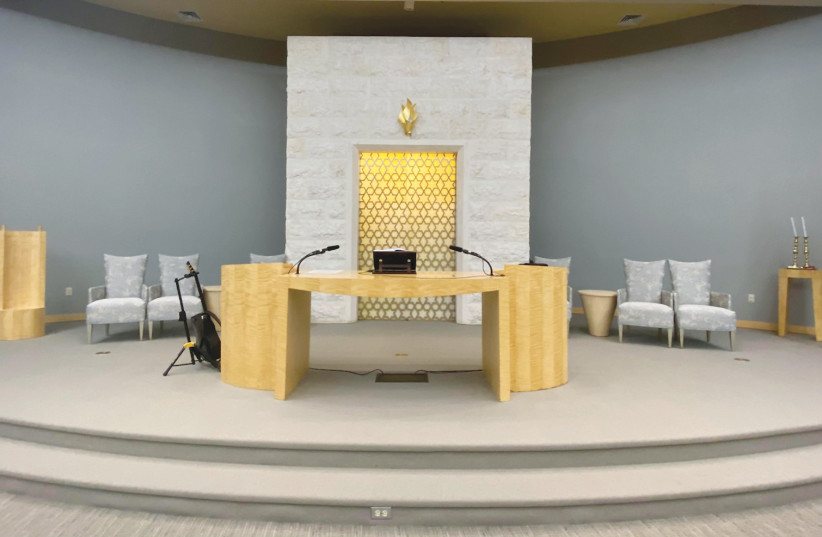Israel must commit to funding all types of Judaism, not just orthodoxy – editorial
On Monday, this paper reported that the government – the most heavily Orthodox in the country’s history – will allocate roughly NIS 1.8 million to non-Orthodox religious communities in Israel.
This should be cause for celebration: if the government funds religious services, it should do so equally, and the fact that this coalition is providing funds to Reform and Conservative congregations should be applauded.
But below the surface, it’s more complicated.
As reported by the Post’s Zvika Klein, the only minister willing for the funds to be channeled through his ministry was Social Affairs and Diaspora Affairs Minister Amichai Chikli, who – perhaps not coincidentally – is a member of Hanaton, a Conservative kibbutz, and whose father is an ordained Conservative rabbi.
That marks a departure from the practice until now, according to which the funds were allocated via the Culture Ministry. Funds for Orthodox communities are, of course, distributed via the Religious Services Ministry, which would balk at the notion of allocating funds to non-Orthodox communities.
But the funding mechanism isn’t the only difference between how Orthodox and non-Orthodox communities are treated by the government.

For one thing, the state won’t even refer to them by their denominational labels – Reform or Conservative – and it won’t call their leaders rabbis. Instead, it calls them “revitalized communities” (whatever that means) and it refers to their rabbis as “community leaders.”
The communities must also meet certain criteria – including a membership of a certain size and holding a set number of Shabbat and holiday services per year with a minimum number of participants – that are more stringent than the criteria for Orthodox communities.
But perhaps most consequential is the massive discrepancy in the amounts allocated.
When the budget is this big, why can’t it be shared with other Jewish sects?
The Religious Services Ministry’s 2023 budget is more than NIS 600m. Local authorities also provide funding to religious councils to the tune of some NIS 150m. and rabbinical courts have a budget of nearly NIS 200m.
The ministry – which is controlled by Shas and is headed by party member Rabbi Michael Malkieli – is expected to see a massive increase in funding in 2024; much of that increase will likely go to funding hundreds of new rabbis. The ministry’s 2024 budget – estimated at NIS 765m. – will represent a striking 42% increase over its 2022 level of NIS 540m.
The NIS 1.8m. allocated to Reform and Conservative communities seems like a bad joke in comparison.
The Reform and Conservative movements have petitioned the High Court of Justice for parity with Orthodox communities on several occasions. The latest such instance, in 2019, noted the existence of some 90 Reform and Conservative congregations and demanded that they be funded accordingly. It also insisted that the state cease its offensive practice of refusing to refer to Reform and Conservative rabbis as rabbis.
Nevertheless, the discrimination continues.
The principle of equality is enshrined in the Declaration of Independence, which guarantees equality “irrespective of religion, race, or sex.” The gross and glaring discrepancy in the government’s funding of Orthodox and non-Orthodox communities – coupled with the hoops through which only Reform and Conservative communities must jump to receive their funding, and the fact that the government won’t even deign to call their rabbis rabbis – is a blatant violation of this principle.
But it’s not only Israel’s democracy that is affronted by the unequal treatment of non-Orthodox Jews – the country’s Jewishness is, as well.
Israel is the state of all Jews, whether Orthodox, Conservative, Reform, unaffiliated, secular, or of any other variety. When the government treats non-Orthodox Israeli Jews unequally, it sends the message – to them and to the majority of Jews outside Israel who also do not consider themselves Orthodox – that it regards their Judaism as fundamentally less legitimate.
This should offend not only non-Orthodox Jews, but anyone who wishes for Israel to live up to its promise as the one and only Jewish state.
So long as the government funds Israel’s religious services, it must commit to funding Reform and Conservative communities, synagogues, and rabbis precisely as it does their Orthodox counterparts.





Comments are closed.